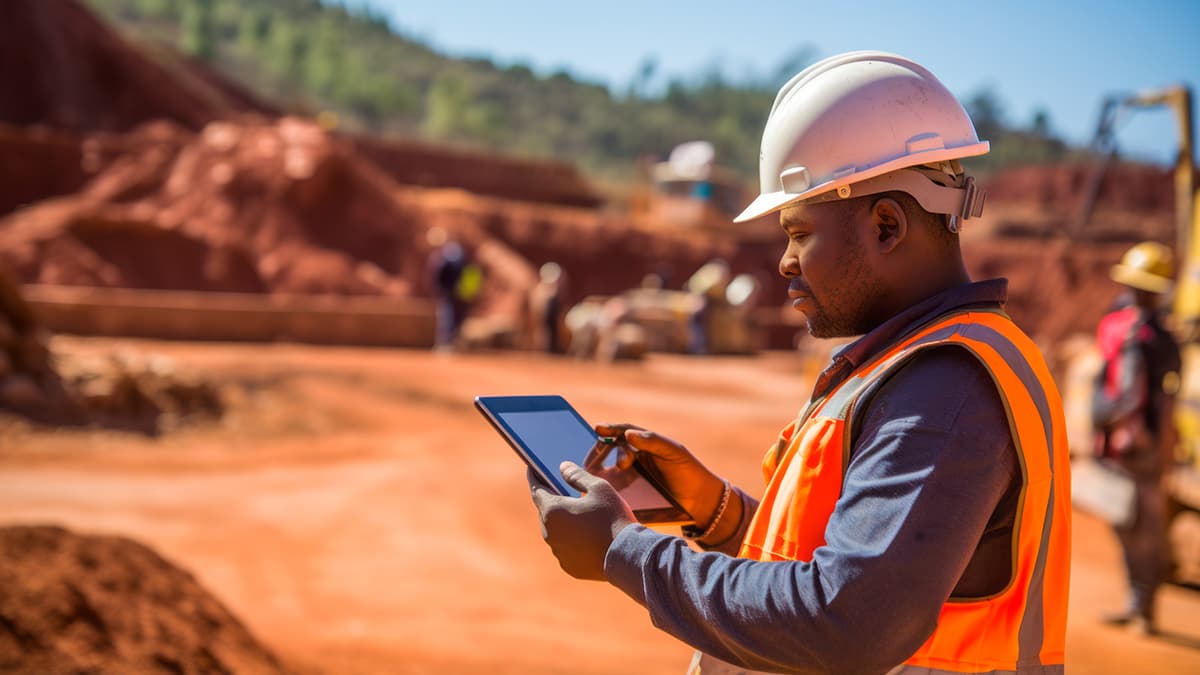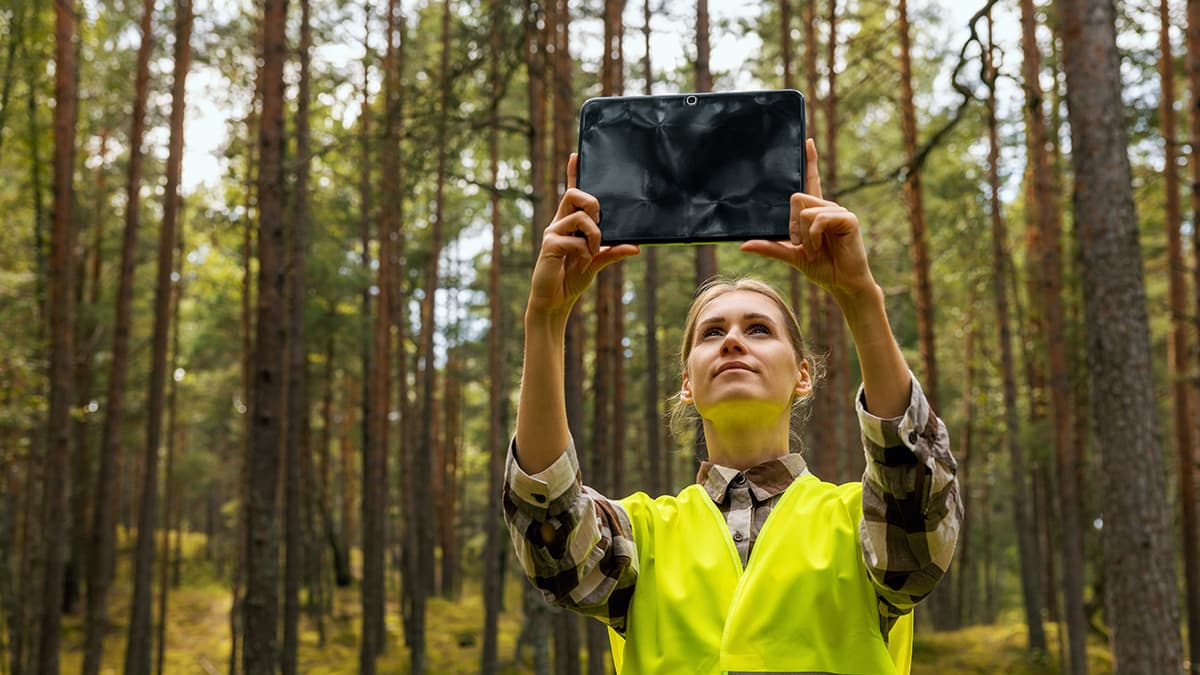.jpg)
The African mining sector is at a critical juncture, facing both unprecedented opportunities and significant challenges. As the global economy shifts towards sustainable energy solutions, Africa's vast reserves of critical minerals have become increasingly strategic. However, the continent's mining industry must navigate complex infrastructural, economic, and governance issues to fully capitalize on these opportunities. This blog post examines the current state of the African mining industry, highlighting key trends, challenges, and potential pathways for sustainable growth.
The Rise of Critical Minerals
The global transition to clean energy technologies has spotlighted Africa's reserves of critical minerals. Lithium, copper, cobalt, and nickel—essential components in electric vehicles (EVs), solar panels, and wind turbines—are abundant across the continent. The World Bank's "Minerals for Climate Action" report estimates that the production of minerals like graphite, lithium, and cobalt could increase by nearly 500% by 2050 to meet the growing demand for clean energy technologies.
Case Study: The Democratic Republic of Congo (DRC) and Zambia
The DRC and Zambia exemplify the potential for critical mineral development in Africa. Together, these countries account for 11% of global copper supply, while the DRC alone produces 88% of the world's cobalt. Recognizing this potential, both nations are developing special economic zones focused on EV and battery production. This initiative aligns with the African Union's Agenda 2063, which emphasizes industrialization and economic diversification.
Lithium: The New Gold Rush
The surge in global demand for lithium has sparked a wave of investment across Africa. Currently, nine lithium mines are under development in countries including the DRC, Ghana, Mali, Namibia, and Zimbabwe. Zimbabwe, in particular, has emerged as a key player, ranking as the sixth-largest lithium producer globally.
Zimbabwe's Strategic Approach
Zimbabwe's government has taken proactive steps to maximize the benefits of its lithium resources. In late 2022, Harare banned the export of raw lithium ore to encourage domestic value addition. This policy has attracted significant foreign investment, with Chinese firms like Zhejiang Huayou Cobalt investing $300 million in the Arcadia lithium mine. Such initiatives align with the African Mining Vision's goal of using mineral resources to catalyze broader economic development.
Infrastructure Challenges: The South African Case
While opportunities abound, infrastructural challenges pose significant obstacles to the African mining sector's growth. South Africa, traditionally a mining powerhouse, illustrates these difficulties starkly.
Transnet's Ongoing Crisis
Transnet, South Africa's state-owned freight rail company, has been grappling with severe operational issues. These problems stem from a combination of factors:
- Equipment shortages: The cancellation of locomotive contracts has left Transnet with an aging and insufficient fleet.
- Vandalism and theft: Organized crime has targeted rail infrastructure, particularly affecting coal and iron ore transport lines.
- Maintenance backlogs: Reduced revenues have hampered Transnet's ability to invest in crucial maintenance.
The impact on the mining sector has been profound. Coal exports through Richards Bay Coal Terminal fell to 50.35 million tons in 2022, the lowest in three decades. Similarly, iron ore exports have declined by 15% since 2019.
These logistical constraints have far-reaching economic implications. The World Bank estimates that inefficient logistics can reduce a country's GDP growth by 1-2% annually. For South Africa, a country already grappling with low economic growth, this presents a significant challenge.
.jpg)
Climate Change and the Future of African Mining
The global push to mitigate climate change is reshaping the African mining landscape. While presenting challenges for traditional sectors like coal, it also opens new avenues for growth.
The Decline of Coal
Global seaborne thermal coal trade is forecast to decline by 7.4% in 2024. This trend poses challenges for major African coal producers like South Africa and Mozambique. However, it also presents an opportunity for these countries to diversify their economies and invest in more sustainable sectors.
Green Steel and High-Grade Iron Ore
The steel industry's shift towards greener production methods is increasing the value of high-grade iron ore deposits. Guinea's Simandou project, with its high-grade reserves, could play a crucial role in this transition. The World Steel Association estimates that using hydrogen instead of coke in steel production could reduce the industry's carbon emissions by up to 90%.
.jpg)
Policy Implications and Recommendations
To harness the full potential of its mining sector, African countries must address several key areas:
- Infrastructure Development: Governments should prioritize investments in rail, port, and energy infrastructure. Public-private partnerships, as suggested by the World Bank's "Maximizing Finance for Development" approach, could be crucial in bridging the infrastructure gap.
- Value Addition: Policies encouraging local processing and manufacturing, like Zimbabwe's ban on raw lithium exports, can help countries capture more value from their mineral resources.
- Governance and Transparency: Implementing and enforcing robust governance frameworks is essential. The Extractive Industries Transparency Initiative (EITI) provides a useful model for improving sector transparency and accountability.
- Skills Development: Investing in education and training programs to build local capacity in mining and related industries is crucial for long-term sustainability.
- Environmental Protection: Adopting and enforcing stringent environmental standards is essential to ensure mining activities do not compromise long-term sustainability goals.
The African mining industry stands at a crossroads. The global energy transition presents unprecedented opportunities for countries rich in critical minerals. However, realizing these opportunities requires addressing significant challenges, particularly in usage of technology.
Leveraging Technology to Address Mining Challenges
The application of innovative technologies presents significant opportunities to address many of the challenges facing the African mining sector. From improving operational efficiency to enhancing environmental sustainability, technology can play a crucial role in transforming the industry.
Digital Transformation and Industry 4.0
The concept of "smart mining" or "Mining 4.0" is gaining traction globally. This approach integrates technologies such as the Internet of Things (IoT), artificial intelligence (AI), and big data analytics to optimize mining operations. For instance:
- Predictive Maintenance: IoT sensors on mining equipment can predict maintenance needs, reducing downtime and improving efficiency. The World Economic Forum estimates that predictive maintenance can reduce maintenance costs by 10-40%.
- Autonomous Operations: Self-driving trucks and remote-controlled machinery can enhance safety and productivity. Rio Tinto's autonomous haulage system in Australia has demonstrated a 15% increase in productivity.
Blockchain for Transparency and Traceability
Blockchain technology can address issues of transparency and traceability in mineral supply chains. This is particularly crucial for critical minerals used in clean energy technologies. The World Bank's Climate-Smart Mining initiative highlights blockchain's potential to enhance the traceability of responsibly sourced minerals.
Environmental Monitoring and Management
Advanced remote sensing technologies and satellite imagery can improve environmental monitoring in mining areas. These tools can help detect and prevent environmental degradation, illegal mining activities, and support more sustainable land use planning.
Skills Development through Virtual Reality
Virtual reality (VR) and augmented reality (AR) technologies can revolutionize skills training in the mining sector. These tools can provide safe, immersive training environments, particularly important in regions where access to physical training facilities may be limited.
By embracing these technological solutions, African countries can not only address current challenges in the mining sector but also position themselves at the forefront of the global mining industry's technological revolution.
However, successful implementation will require investment in digital infrastructure, policy frameworks that encourage innovation, and partnerships between government, industry, and academia to build local technological capacity.
At CSM Tech, we work with mining regulators, private & public miners, mining equipment manufacturers and logistics-operators to optimize the mining value chain, right form the pit to the port.
Discover more about CSM’s mining solutions here: www.csm.tech/domain-offering/integratore/


























































We will verify and publish your comment soon.